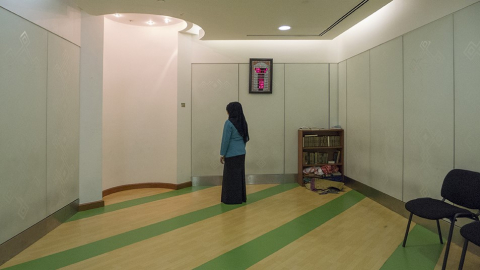Reception & Conversation with the Artist | Sunday October 23rd, 2pm
London-based artist Leah Gordon is internationally renowned for her photographs and publications on Haiti, her decades long collaboration with the group Atis Rezistans, and her role as co-founder of Gheto Biennale in Port-Au-Prince. Of equal importance are her deep explorations of class politics, anarchist thought, architecture, and the paradoxical relationship between magic and modernity. Sacred & Profane Love Machines is dedicated to these latter concerns, connecting two distinct bodies of work entitled Reciprocity Failure and Duvalierville / The Black Dog of Civic Space, both exhibited for the first time in the United States. Alongside these projects we are pleased to exhibit a work in progress, Monument to the Vanquished, exploring the legacy of dispossession and historical relevance of the Enclosures Act. This work currently comprises of intricately hand-tinted photographs which invoke a sense of the uncanny and speak to a more Pagan and magical relationship to the land.
Gordon’s engagement with literature and poetics is expressed throughout her oeuvre, making it especially appropriate to borrow the show’s title from a novel by Iris Murdoch, which whilst grappling with the unruly binaries of the sacred and the profane also ends shockingly in a European airport. In this exhibition, Sacred & Profane Love Machines take the form of airport prayer spaces and air traffic control towers, blessed and monumental iron cast bells, and fire fighters’ drill towers from across London, a city where fire stations have been made dangerously redundant. Mostly devoid of people, Reciprocity Failure and Duvalierville / The Black Dog of Civic Space both convey an indirect but powerful social meaning through their implied human presence, as well as the beauty and care of their material form. Some photographs exist in the glory and detail of large format black and white photography, others taken clandestinely with a compact camera, others yet, reinterpreted with bold color on canvas by Haitian painter Michel Lafleur. Most directly addressing the tension between magic and modernism, as well as resistance and oppression, are perhaps the works from Duvalierville / The Black Dog of Civic Space, named after a modernist utopian town envisioned by Haitian dictator, François Duvalier (aka Papa Doc). We are here invited to temporarily inhabit the town’s creatively repurposed buildings, haunted by Papa Doc’s archrival, believed to have escaped by transforming into a black dog.
One could perhaps summarize the exhibition in the artist’s own words: “Modernism's relation to architecture; the intervolved histories of the slave trade, the enclosures, and the industrial revolution; grassroots religious, class and folk histories; and the proliferation of informal economies ground me… I see no futures only the past.”
Presented by Power Plant Gallery and FHI Social Practice Lab. Co-sponsored by the Duke AAHVS Visiting Artists Series, Dean of Humanities, and Durham Click Festival. Pedro Lasch is a Research Professor of Art, Art, History & Visual Studies at Duke University.
